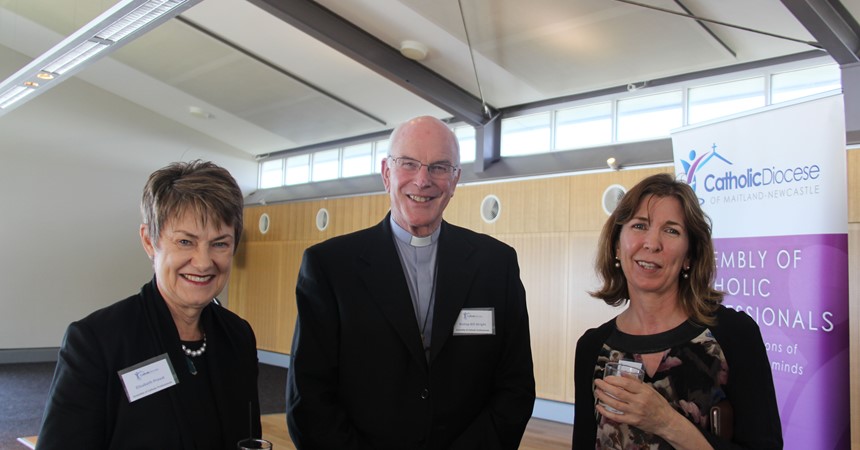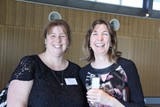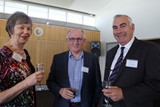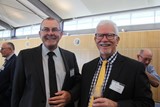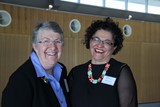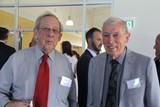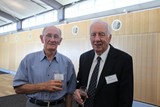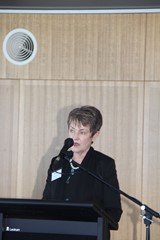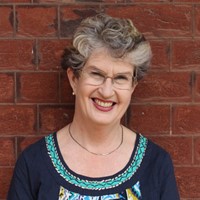Elizabeth Proust AO was described by Manager, Business and Community Engagement, Barry Urwin, as “a lady of significance” and her impressive curriculum vitae certainly illustrates this. She has occupied substantial positions in BP, the Victorian Department of Premier and Cabinet, Nestlé and the Australian Institute of Company Directors (AICD). She was CEO of the City of Melbourne.
In 2010 Elizabeth was named an Officer of the Order of Australia in recognition of distinguished service to public administration and to business, through leadership roles in government and private enterprise, as a mentor to women, and to the community through contributions to arts, charitable and educational bodies.
She has a Law degree (University of Melbourne) and a Bachelor of Arts (Honours) from La Trobe University.
Elizabeth said that her “leadership journey started as the bossy eldest of nine children. All of my teachers were nuns until Year 11.” Clearly, this example of influential female leadership has stood her in good stead.
Elizabeth, who serves with Bishop Bill on the Truth, Justice and Healing Council, named a number of factors that are significant in opening advanced career paths for women: the availability of high quality, affordable childcare; addressing the myth of ‘superwoman’; interrupted work lives due to childbearing and family demands; the still evident pay gap; lack of openness to studying STEM subjects, and the frequent failure to gain financial literacy alongside specific position qualifications and experience.
“Even in university faculties where male/female graduates are more or less equal, down the track, women don’t progress at the same rate as men,” Elizabeth said.
She is chair of the AICD and under her leadership, the Institute offers a mentoring program to fifty women annually. 450 women apply.
Efforts to increase significantly the number of women sitting on boards – in business, government and not-for-profits – have been significant across various roles in her career. It’s emerged that the figure of 30 per cent representation on a board is the tipping point in changing the conversation.
Elizabeth’s generous sharing of her insights was well received. I couldn’t help thinking that I would love our senior students – girls and boys – to have the opportunity to listen to her.
To learn more about the Assembly of Catholic Professionals, please P Barry Urwin, 4979 1142 or E barry.urwin@mn.catholic.org.au.
